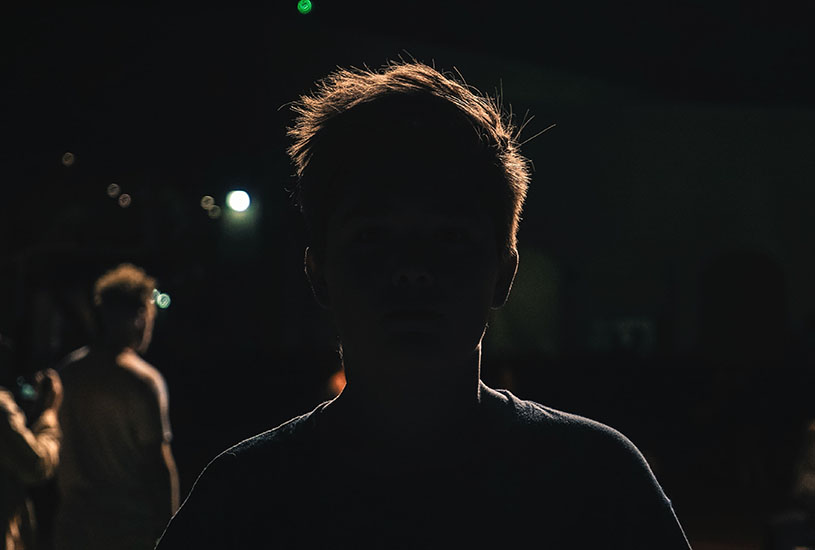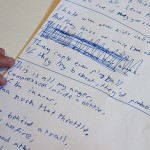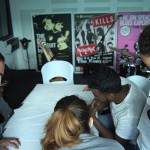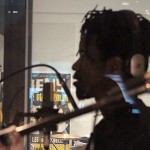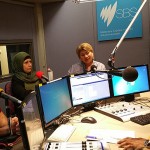Dr Virginie Andre is seeking ways to help marginalised youth find their voices.
Young people from marginalised groups have much to offer, if given the chance and allowed to share their voices, claims Deakin University political scientist Dr Virginie Andre.
Dr Andre has been unstoppable in her efforts to help societies reframe the way they relate to their youth and develop channels that allow them to express their experiences and frustrations. Over the past two years, she has been conducting focus groups with young people in Australia, Thailand, Belgium and France.
“It struck me how many young people – in all these places – told me that they felt the focus groups had been the first time someone had listened to what they had to say, with genuine empathy and rapport,” she said.
“It is difficult to be young today. Re-centering young people is at the heart of the discussion. They have so much to say. They may be young, but they are not naive.
[testimonial_text]They have a sense of belonging, saying ‘I’m French,’ ‘I’m Belgium’ or ‘I’m Australian,’ but, because they feel marginalised and in some instances have faced discrimination, they are asking ‘Is this country ready to accept me?[/testimonial_text]
[testimonial_picture name=”Dr Virginie Andre” details=”Alfred Deakin Institute for Citizenship and Globalisation”]
 [/testimonial_picture]
[/testimonial_picture]One initiative that Dr Andre has used to help disaffected youth find and express their voices was a week-long workshop by French Muslim rapper Médine that was held with young people in Melbourne’s City of Darebin in May.
The participating youths confided that they found it hard to express themselves simply by talking with others, but through peer-to-peer exchange and creative arts, they were able to tell their own unique stories and build a sense of confidence. The workshop was organised in partnership with Darebin City Council.
Dr Andre came to Australia from Belgium to complete her PhD and joined the Alfred Deakin Institute for Citizenship and Globalisation (ADI) in 2014 as a Research Fellow.
Her experiences growing up in Thailand and Belgium made her familiar with the nature of political violence and the ways it impacts people’s lives.
“I was very affected by 9/11 and I wanted to research how current events have been framed by that,” she said.
Her PhD focussed on the transformation of the separatist movement in Southern Thailand after 9/11, investigating whether more extreme ideology and recruitment practices were related to this event.
“After nearly 20 years of peace, there was a resurgence of violence in late 2001 and 2004 in Thailand,” she noted.
“Suddenly, I didn’t recognise my mother’s country. I feared that the way in which Thailand and Thai Muslims were then described in the media would be damaging to the local communities in the three southern border provinces of Thailand.
“I asked myself what I could do as an individual to better inform policy makers on approaches and solutions to reduce the violence and further marginalisation of a community.”
In 2010, Dr Andre was awarded a large research grant by the EU Commission Delegation to Thailand to map violence in southern Thailand. This provided her with access to data that supported her hypothesis that violence was more extreme post 9/11.
“The new ideology in southern Thailand is a fusion of nationalist ideology and jihadist ideology. It is partly about the instrumentalisation of Islam,” she said.
“In 2004, Thailand started seeing attacks against police stations and a new wave of terrorist violence. The religious dimension added to the recruiting impact of the nationalist narrative, mobilising more young people.”
Her work on this topic was extended in 2013 when she was approached by the National Broadcasting and Telecommunications Commission in Thailand to develop a broadcasting model to counter violent extremism by developing a counter narrative.
She consulted 20 focus groups in five regions, meeting with Muslim community members, including journalists, students, activists, religious leaders, academics and the public.
“We noticed that young people were able to pick and choose elements of the global narrative and repackage them in the local context,” she said.
“Radicalisation fills a void for young people across different groups, whether in Thailand, Belgium, France or Australia.”
Broader analysis of counter radicalisation programs taking place in European countries such as Italy, France, Denmark, the UK and Belgium has provided an important lesson that, for any initiative to be successful, it must be done in consultation with the community, not with a ‘top down’ approach.
“Luckily, Thailand is still in a phase where prevention is possible, but we urgently need to talk about ISIS in the context of Thailand, as young people are fascinated by the cleverly crafted narrative,” said Dr Andre.
“Many young people have questions about the narrative that are either ignored, left unanswered or, at worse, provided by the Internet.
“We need to have frank conversations because the more militant narratives are online and only a Google away.”
The next stage of this stream of Dr Andre’s research will be to look at the generation gap among Muslims in Thailand and investigate ways to bring young people together with religious leaders and teachers to facilitate dialogue about the issues.
In another project, funded by Deakin, Dr Andre is seeking to understand the appeal of violent extremism among young people in Australia, Belgium and France. She has already run focus groups in Molenbeek, Brussels, the home base of a number of young people responsible for terrorism in France.
“We need to understand what makes a young person, when they come to a crossroad, either turn left and construct themselves positively, or right – down the path of anti-social behaviour and possibly violent extremism,” she explained.
“I can relate to the experience of a young person of mixed heritage feeling marginalised and discriminated against. Luckily, I went left and not right. The encounters you make in life, the people who make an impression on you and believe in you can make the difference.
“We need to ask how we can empower young people to become positive agents in their own lives.”
Dr Virginie Andre has devoted herself to bridging academia with practitioners, organising a successful international conference “Addressing the New Landscape of Terrorism” in Melbourne in February 2016. One of the important key points that emerged from the conference was the urgent need to engage young people.
